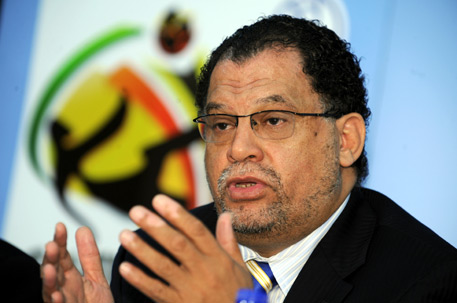Danny Jordaan bemoans the meek, almost silent, voice Africa has on the international football stage despite Caf having a greater number of associations than any other continent under Fifa.
That huge number only comes in handy at elections.
It is the one time that the continent has a real say in matters of the organisation. Otherwise, with just four members from Africa in the 22-man executive committee of Fifa where the real power eventually lies, things are somewhat different.
It is something that the CEO of the 2010 Fifa World Cup local organising committee would like to see changed, he said in his keynote address – on the impact in the interest and commercial value of football in Africa after hosting the event - at the African Football Executive Confex in Illovo.
The number of places allocated to the African teams in the World Cup – five in the next edition – is another bone of contention for Jordaan, who said whenever they raised the issue with Fifa they have been told to “leave it,†but “we can’t leave it,†he said in his address.
For any of those issues to change, Africa needs to speak with one voice, which hasn’t happened.
“It is very clear that the African continent should have greater unity and solidarity if we are to play a meaningful role in global football,†Jordaan said.
“We are not strong enough as a collective to have much of a say on important matters. The issue of the economy has been raised as a problem but Ghana’s economy is growing by 8% and Angola by 11%. South Africa is quite strong and so is Nigeria.
“South African companies have also spread throughout the continent and are giving much support to the sport. This will make it easier to create a profile of continental tournaments like the Champions League. We need to make it not just an African product, but a global one.â€
Jordaan should know all about divisions.
They have played a role in squashing his dreams of ascending to the Fifa executive committee and led to his 11th hour withdrawal from the Cosafa presidency race.
Divisions aren’t the only thing stunting growth on the continent. On the pitch, where it matters most, it has been disappointing with the quarterfinals the highest any African country has reached in the World Cup.
“The 2010 World Cup was described as an African World Cup with hopes that an African team can raise the bar but it just didn’t happen,†Jordaan said.
“That part has been disappointing. Every continent that has hosted the event has had the winners coming from it with Brazil who won it in 1994 (held in the United States) and 2002 in South Korea/Japan the only exception but in 2002 South Korea reached the semifinals.
“Administration is also an area that needs improvement for our teams to do better. Every time before a major tournament, you can be sure that in the months leading into it, there is a coach who will be fired and another hired just before the tournament kicks off.
“If you look at successful teams, stability in the coaching department has helped achieve that. The focus now for Africa should be to achieve success in Brazil 2014.â€
The financial fruits of hosting the 2010 edition have been immense, Jordaan said. The R450-million for the 2010 World Cup Legacy Fund, which he chairs, was handed to the country on Wednesday.
“The money should focus on development,†Jordaan said. “In the committee there are members from both Fifa and Safa.
“There are three members from Fifa including Jerome Valcke, Fifa’s general secretary.
There are four directors from Safa.
There is also an independent member Michael Katz and the director general from the Department of Sports and Recreation, Alec Moemi.
“It will be a transparent process.†Jordaan said.
